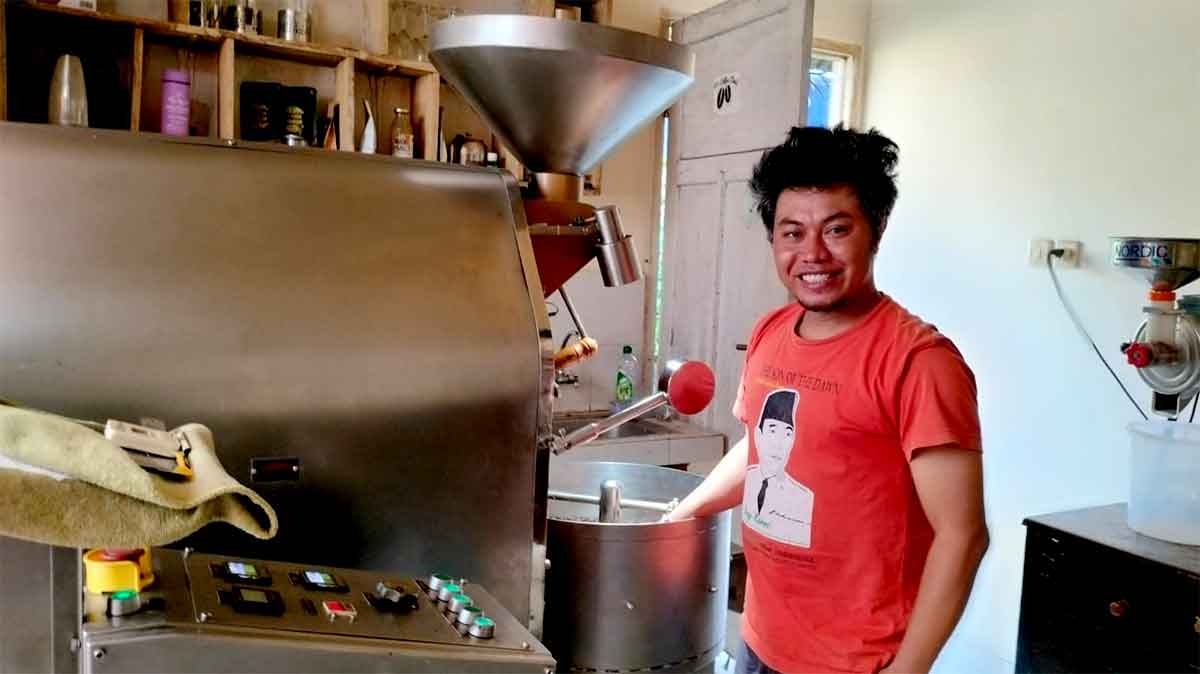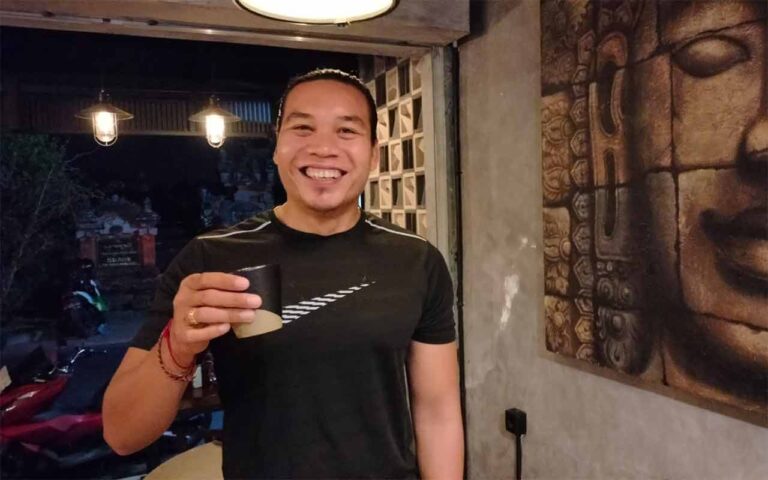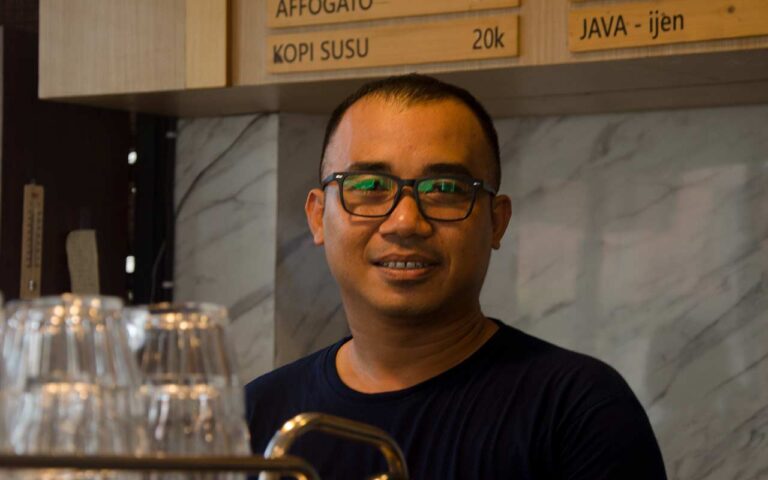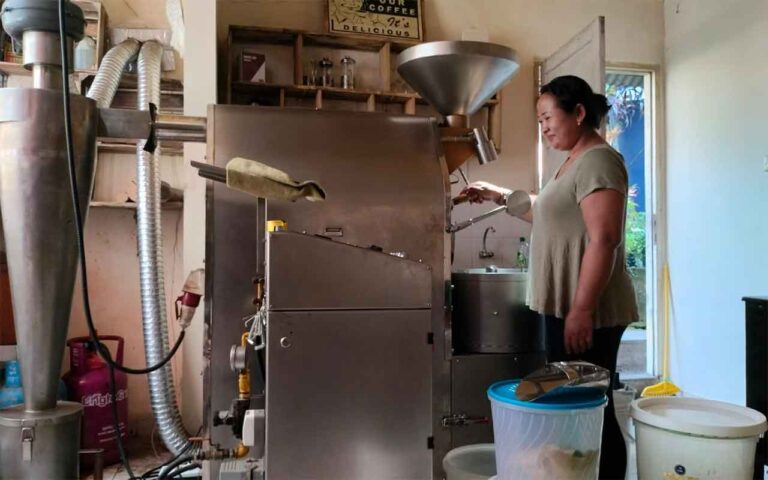I Komang Sukarsana shifts the position of his coffee cup slightly forward so that he can take photos from the right angle. For him, Balinese coffee is the result of farmers’ hard work, which must be highly appreciated.
Bali Coffee community must pay more attention to coffee farmers. Good coffee never comes from bad coffee farming.
That afternoon, he was casually chatting with visitors to his coffee shop in Peliatan, Ubud, Bali. The conversation was, of course, about Bali Kintamani Arabica coffee, which has become his business passion.
Bali Kintamani Arabica coffee is the product of an area with an altitude of 1,200 meters above sea level. There are at least 14,000 hectares of land that have the potential to become a world-class coffee plantation.
“Many farmers lack the confidence to plant coffee because the price has dropped to below 10 thousand per kilogram,” he said while checking the shots on his smartphone camera.
At one time, farmers cut down their coffee trees and replaced them with vegetables that harvest faster and generate income.
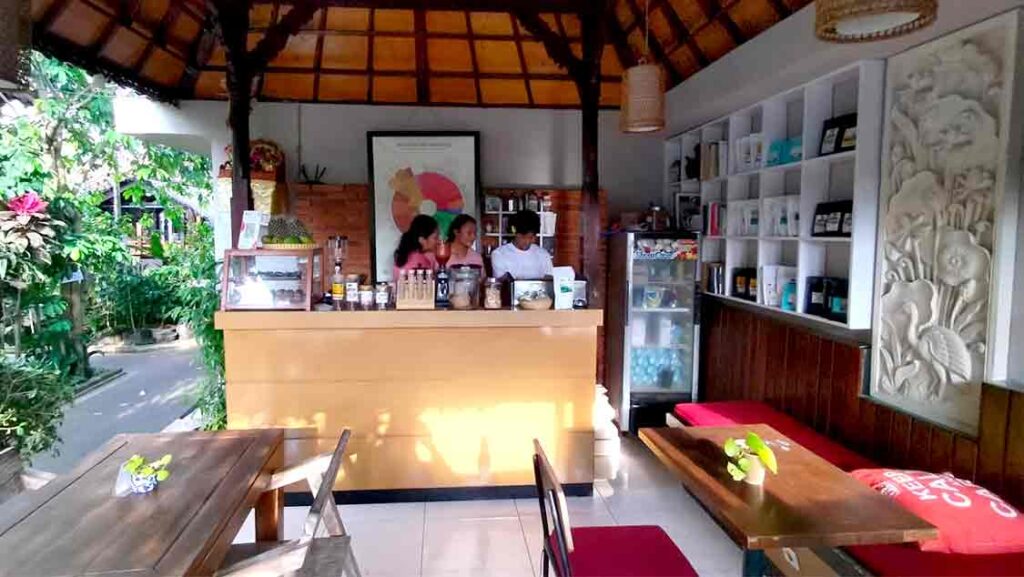
I Komang Sukarsana have been interested in the world of coffee, especially Kintamani Arabica Coffee, since 2010.
At first, he accidentally met Australian tourists who were also in the coffee business in Bali. It turns out that foreign tourists are not just vacationing in Bali, enjoying the beauty of this island of a thousand temples, but also enjoying the benefits of transporting coffee commodities from Kintamani.
Initially, Komang Sukarsana was invited to become a quality control (QC) officer for this Australian tourist business. Indeed, at first, Komang Sukarsana had to learn almost from scratch to become a quality control officer who supervised the farmers and coffee farms supplying this Australian coffee business.
After being full of experience as a QC officer, Komang Sukarsana decided to start trying to empower the coffee farmers in his village to have a better bargaining position.
“I want farmers to be able to count, have a good knowledge of coffee cultivation, and get a fairer return on coffee sales,” he said.
For this initiative to empower farmers, which is reflected in his business model, I Komang Sukarsana received an award as a young technology-based entrepreneur from the Bangli Regency Government in 2013.
He gained access to training that was very useful for developing his business from various assisting institutions. Not only was he training, but he also had the opportunity to build a network in the specialty coffee world.
He is often sent to various regions throughout Indonesia to exchange experiences about coffee farming with other coffee plantations.
He also has the opportunity to expand his business network by often becoming an Indonesian representative to participate in various international coffee exhibitions abroad.
To more effectively empower coffee farmers, I Komang Sukarsana is involved in the Kintamani Geographical Indication Protection Society (MPIG) Cooperative. From 2012 to 2014, he was active as the marketing manager, responsible for finding buyers for the farmers’ coffee harvest.
“MPIG Kintamani Cooperative used to regularly export containerized rice coffee,” he recalls.
However, he decided to quit as the cooperative’s board member when he began to focus on developing his roastery business and rice coffee sales. He didn’t want a conflict of interest that could cause prejudice among cooperative members due to his position as marketing manager.
Komang Sukarsana’s coffee business is growing rapidly. He already has regular customers from restaurants, hotels, and villas around Ubud. Not to mention overseas customers who often place orders with jumbo capacities that often cannot be fully fulfilled.
“Demand is high, but the production capacity of farmers is not yet able to meet it,” he explains.
The education graduate, who was an honorary teacher at an elementary school in his village, is not about to stop looking for solutions. He would love to have the opportunity to learn coffee farming from farmers in Vietnam, whose harvest capacity can be three times that of Indonesian coffee farmers.
The man born in Songan Village, Kintamani, June 18, 1985, has never been able to escape his concern for coffee farmers. He tirelessly seeks ways to ensure that coffee farmers can get their fair share of the global coffee market trend that is likely to continue to grow.

